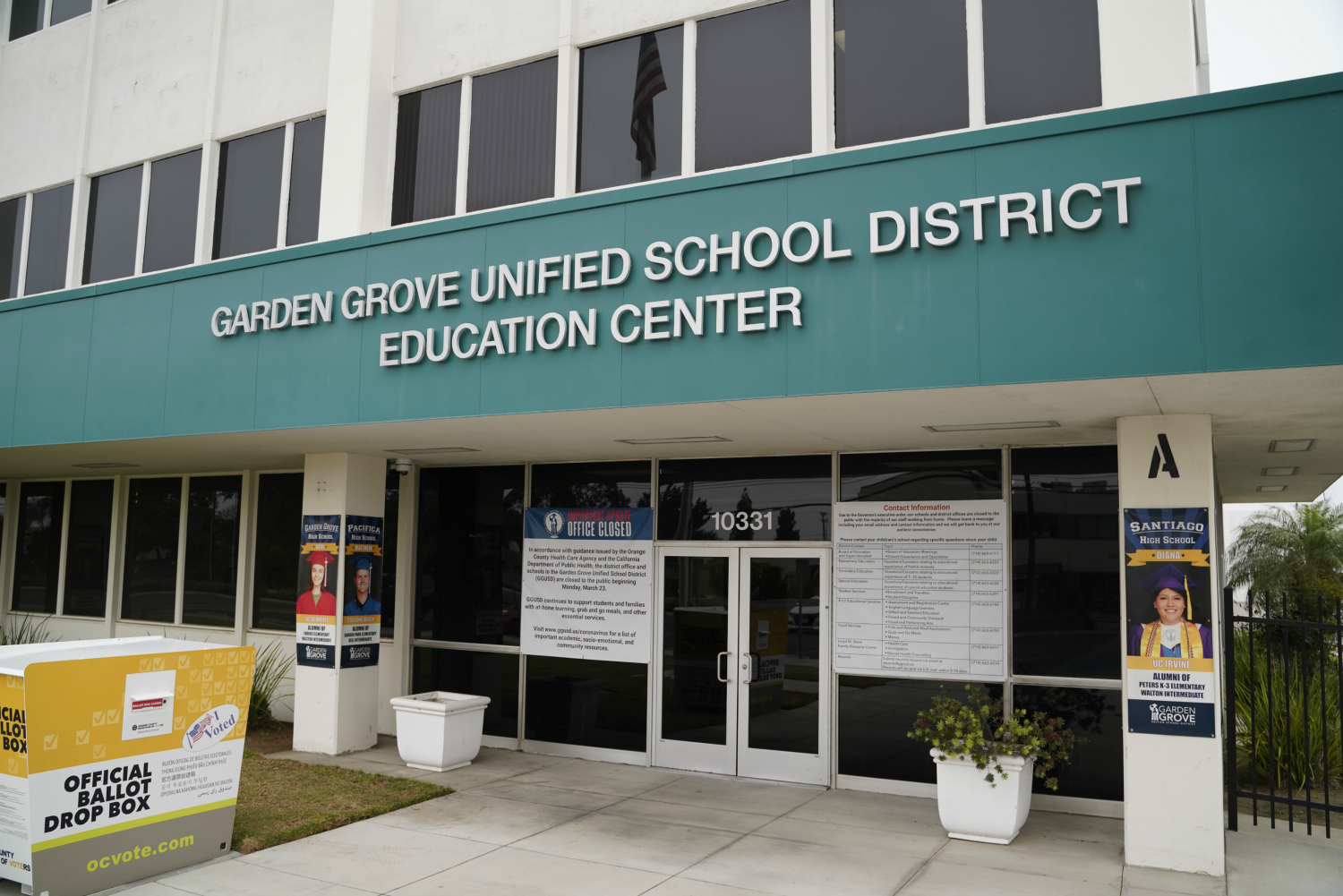Garden Grove Unified has announced a new partnership aimed at increasing access to mental health services for the district’s approximately 41,000 students, along with their families and employees.
Officials say they’re working with Care Solace, which offers a 24/7 concierge service and easy-to-use web platform to guide users through the process of finding individualized mental health resources and providers.
 The support is available for students, families and the district’s 5,000 employees at no cost.
The support is available for students, families and the district’s 5,000 employees at no cost.
“Earlier this year, our Board of Education approved a resolution launching a Choose Wellness campaign to increase awareness and access to mental health support,” GGUSD school board President Walter Muneton said. “In the face of a global pandemic, these goals are more important now than ever before. We want to make it as easy as possible for our community to find help during this challenging time and Care Solace has that expertise.”
Those who are interested in contacting Care Solace for support may call 888-515-0595 to speak with a member of the concierge team, or they can visit www.caresolace.com/ggusdfamilies.
Care Solace works with insurance coverage, including Medi-Cal, Medicaid and Medicare, as well as those without insurance. Its platform filters by age, gender, ZIP code and special request.
According to its website, the organization’s system aligns with the Multi-Tiered System of Support framework, which is being used by schools to provide core supports for all students, additional assistance for some, and targeted interventions for those with the greatest needs.
Care Solace says it’s “on a mission to calm the chaos associated with mental healthcare coordination for high school and college students.”
“By partnering with a mission-driven school district like Garden Grove Unified, we’re paving a new path forward to connect students to verified community-based resources in times of need,” Care Solace founder Chad Castruita said.
“There are many barriers that make it difficult for schools and families to get mental healthcare,” he said. “We want to lift that burden so they can focus on what’s most important – getting well.”
